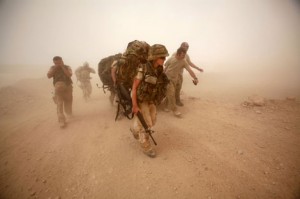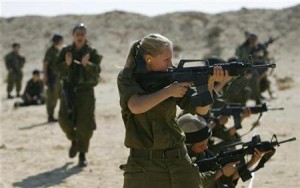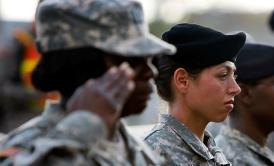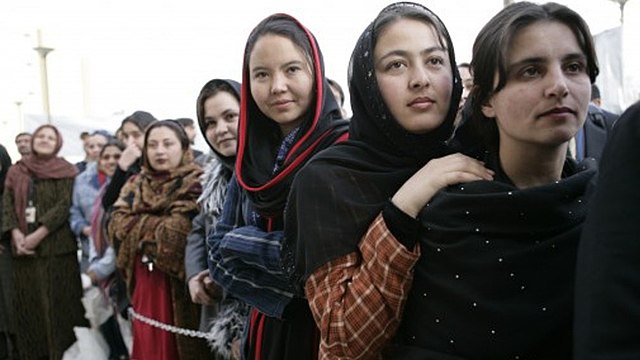
In an effort to expand its female membership, the Australian Defence Force [ADF] implemented a ‘test drive’ approach enabling women to temporarily fill combat positions. With the recruitment of women for the defence force increasing at a negligible one per cent over the last 10 years, the innovative policy seeks to appeal to women without the obligatory commitments to long-term career developments.
A previous article on this adaptation specified two facets of the ADF that formed a grave barrier not only to the success of this new policy but also to the more general advancement of women within the institution. The first was a policy of restriction that barred women from entering frontline combat positions and a variety of other roles that made up the seven percent of jobs in the military that excluded women. In the fall of 2011 this blockade was removed sparking adverse reaction from top ranking ADF officials and from those within the Australian Defence Association [ADA]. The second element identified – and one that was discernible in the official statements of the ADA and ADF – was the military culture that cultivated a long history of sexism and discrimination. The third, which will be analyzed here, is the multitude of sexual assaults and reports of abuse that has rendered women’s participation with heightened insecurity within a male dominated industry.
The tendency for sexual assaults, ranging from rape to harassment and misconduct, has been remarkably high in many militaries, and in this regard, the ADF is no exception. In particular, the ADF has suffered from a repeated inability to establish channels for accurate reporting and for proper processing of victims and their complaints. The upshot for the ADF has been a staggering amount of accusations and charges, now referred to by the Defence Department as “Hot Issue Briefs”, which has quickly painted an appalling picture of the widespread maltreatment of women that is surfacing.
Throughout the history of female integration into the ADF, there is evidence of prevalent sexual violations with a tendency to involve alcohol abuse and the use of media outlets. When an inquiry over the last 60 years recently took place, some 775 “plausible” sexual abuse claims that remain uninvestigated where found, showing sexism as a “deeply embedded” characteristic of the Defence Force.
One of the latest incidences to seize Australia’s media attention was a ‘Skype scandal’ at the ADF Academy in which a female cadet was unknowingly filmed engaging in consensual sex with a fellow soldier while his friends watched the feed via Skype from a neighboring room. The repellent violation of the woman’s privacy, described by the Defence Minister as “the greatest breach of trust”, was compounded by the stunning mishandling of the incident by the ADF Academy Chief Commodore Bruce Kafer. Upon receiving reports of the event, Kafer decided to charge the female cadet with a disciplinary matter that he later claimed was in regards to an unrelated issue. The patent inability of Chief Kafer to manage the situation at his college should not be presumed as an isolated incident but rather as a marker of the misogynist culture fostered in the ADF.
The scandal, which came to the public’s attention in March 2012, ushered in a barrage of similar accusations all pointing to an extensive pattern of sexual bullying and predation in the ADF. From the 19-year-old ADF trainee who was raped then told to “suck it up” when she reported it to the Australian Defence Force Academy, to the reports of naval “sex games”, the vastness of abuse is as disconcerting as it is systematic. The latter episode was revealed back in 2009 when sailors abroad HMAS Success – a vessel operative in South East Asia – were reportedly placing cash value on the heads of the female members depending on the nature of the sexual encounters, then documented these exploits in a book titled, “The Ledger.” The Defence Department, however, later claimed that it has yet to confirm the “veracity of any allegations.”
Sex Discrimination Commissioner for the Australian Human Rights Commission, Elizabeth Broderick issued a detailed and critical appraisal of the organization that provides some scope to these occurrences. In her report she found that, of the women studying at the ADF Academy alone, three-quarters had experienced sexual harassment. She notes that the tendencies for threats to be made against victims meant that many of those that suffered sexual harassment at the hands of their colleagues and superiors often stayed silent out of fear.
Where to go from here

In light of the new recruitment policy for women, we need to consider how to comprehend the extent of sexual assault in the ADF when such a culture of abuse and lack of respect for women has permeated its entire system. Are these mistreatments an aberration of the behavior of the predominately male-dominated military? Or are these incidences and their (mis)management becoming the defining attributes of an institution supposedly built upon integrity, honor, and professionalism of a national defence force?
These questions are inescapable if the ADF hopes to obtain a greater reach of female membership through temporary policies like the new “test-drive” approach. Increasing the number of women in leadership positions undoubtedly requires real shifts in the managerial style and a fundamental restructuring of the organization that reevaluates its perceptions of founding military principles. Defence Minister Stephen Smith has emerged as a staunch advocate of women’s representation in the ADF and has argued, “If I had been silent on [the reports], my very strong view is that the Australian community would have thought nothing had changed in the Australian Defence Force when it came to the treatment of women who were potentially the victims of serious sexual abuse.”
Still, the employment of this new recruitment strategy is untimely. Opposition defence spokesman David Johnston claimed the sudden announcement appeared to be a simple distraction to divert attention from the inquiries about the sex scandal arguing, “It’s like muddying the waters.” The irony in this ‘distraction’ is, of course, that while attempting to revamp female recruitment, the ADF has concomitantly demonstrated its inability to tackle the basic issues that arise when women are admitted into their institutions.
Perhaps the greatest irony of this temporary adaptation of female recruitment policy can be found in the statements of Neil James, spokesman for the Australian Defence Association. According to James, “when you get into the increased risk of sexual assault the men will try and defend the women based on the gallantry argument rather than engage the enemy troops.” With “the ADA stand[ing] by this” belief the suggestion is that issues of rape are situated within the theatre of war – and not within the institution – and perpetrated by enemy men – and not by those entrusted to protect civilians (including women). What comes to light in these statements is that the Australian Defence Force holds and disseminates perceptions of gender that are highly distorted and result in the perpetuation of a hostile and insecure environment for its female soldiers.
The integration of women in the military raises complex issues that are unquestionably challenging to tackle. Attempts to increase female integration vis-à-vis ‘try it before you buy it’ approaches have merit, yet they are implemented within a byzantine system that has emerged through the cultivation of androcentrism. Issues of rape and sexual abuse are tangible examples of how this culture has manifest. However, it is the cycle of maltreatment of women that is allowed to continue with impunity, which is the most important agenda worth tackling if the ADF really wants women to ‘buy it’.




